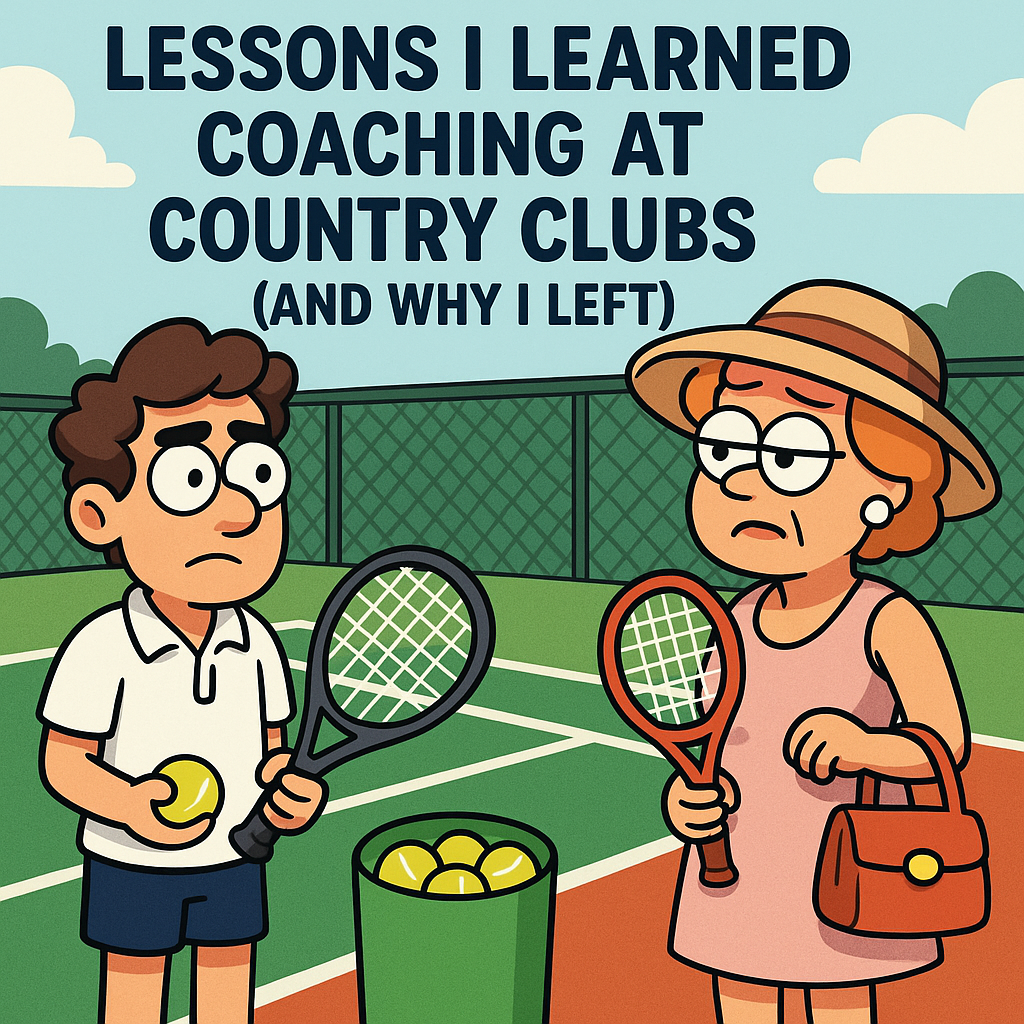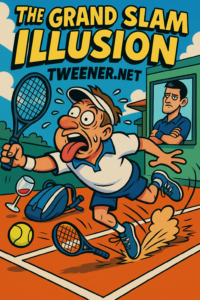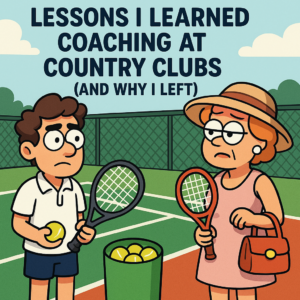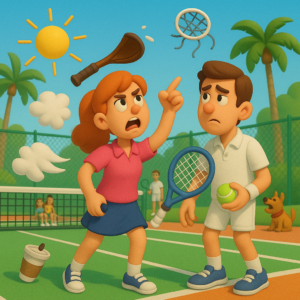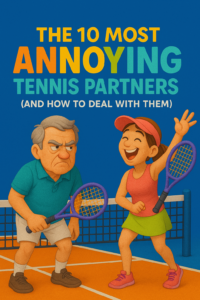If you’ve ever wondered what it’s like to coach tennis at country clubs, let me give you a peek behind the curtain. It’s not all pristine courts, leisurely matches, and appreciative members thanking you for your sage tennis wisdom. Nope. Coaching at a country club is more like being the lead babysitter for a bunch of adults who think they’re auditioning for Wimbledon—while you’re also expected to navigate egos, drama, and the occasional meltdown over who took whose favorite court time.
Don’t get me wrong—there were good moments. But after years of dealing with the lunacy, I finally had to hang up my whistle and walk away. Here’s why.
1. The Players Who Think They’re Going Pro
Every club has them: the 3.5 warriors who think they’re just one topspin forehand away from cracking the ATP or WTA rankings. These are the players who obsess over the tiniest details of their technique—“Is my elbow at exactly the right angle on my backhand follow-through?”—while ignoring the bigger picture, like the fact that they’re losing every match because they can’t keep the ball in play.
I’ve had players tell me they need to “tweak” their game because they’re planning to “go for it” next season. Go for what? A club doubles title? You’re not going pro, Susan, and that’s okay. Let’s focus on hitting three balls in a row over the net before we start talking about your “net game strategy.”
2. The Drama Queens (and Kings)
If you think high school is full of drama, you’ve clearly never been part of a country club tennis scene. The amount of gossip, backstabbing, and passive-aggressive nonsense that goes on off the court could fuel a season of Real Housewives.
I’ve seen grown adults lose their minds over who gets to play on Court 1. I’ve witnessed full-on feuds erupt because someone didn’t get invited to a doubles round robin. And don’t even get me started on the “teammate poaching” that happens during league season. It’s like Survivor, but with tennis skirts and monogrammed visors.
3. The Helicopter Parents
Coaching juniors at a country club is a whole different kind of headache, thanks to the parents who think their kid is the next Serena Williams—despite the fact that little Chloe spends half the lesson picking dandelions and the other half asking when it’s snack time.
These parents will hover at the side of the court, offering their own “coaching” tips (because obviously they know more than you, the actual coach), and then demand to know why their precious angel isn’t winning more tournaments. Maybe because she’s eight, Brenda, and her favorite part of tennis is the post-match juice box.
4. The Fashion Show
At some clubs, tennis isn’t so much a sport as it is a runway. You’ve got the players who show up decked out in head-to-toe designer gear—matching skirt, top, visor, and wristbands—but can’t hit a forehand to save their lives.
I once had a woman tell me she couldn’t possibly dive for a shot because she didn’t want to scuff her $200 skirt. I’ve also had players interrupt lessons to reapply lipstick or check their reflection in the clubhouse windows. Priorities, right?
5. The Excuse Makers
Every coach knows this player: the one who always has an excuse for why they lost.
“The sun was in my eyes.”
“The wind kept changing directions.”
“I think my strings are dead.”
Never mind that their opponent was playing in the same conditions and somehow managed to win. These players would rather blame the universe than admit they just got outplayed. Owning up to a loss? Not in their vocabulary.
6. The Unrealistic Expectations
Some club players genuinely want to improve, and that’s great. But others expect instant results—like the guy who booked one lesson and then got mad when he didn’t immediately start serving like John Isner.
Improvement takes time, consistency, and effort. But try explaining that to someone who thinks they can fix their entire game with one tip they saw on YouTube. Spoiler alert: they can’t.
7. The Burnout
After years of dealing with the madness, I started to burn out. Coaching used to be something I loved—helping people improve, sharing my passion for the game, watching players have those “a-ha” moments on the court. But after a while, the joy started to fade.
I was spending more time managing egos and putting out fires than actually coaching. The constant drama, the unrealistic expectations, the endless parade of excuses—it all started to wear me down. I wasn’t having fun anymore, and if I wasn’t enjoying it, how could I expect my players to?
8. Why I Quit
Eventually, I realized it was time to walk away. I wanted to remember why I fell in love with tennis in the first place—the thrill of competition, the joy of hitting a clean winner, the camaraderie of playing doubles with friends who didn’t care whether you won or lost as long as you had a good time.
So I quit the country club scene. And honestly? It was one of the best decisions I’ve ever made.
9. What I Learned
Despite all the craziness, I did learn some valuable lessons from my time coaching at country clubs. I learned that tennis is about more than just technique—it’s about mindset, resilience, and having fun. I learned that sometimes, the best thing you can do as a coach is to step back and let your players figure things out for themselves. And I learned that no matter how ridiculous things get, there’s always something to laugh about.
Would I ever go back to coaching at a country club? Probably not. But I’ll always be grateful for the stories, the lessons, and the unforgettable cast of characters who made my time there equal parts maddening and hilarious.
To anyone out there still coaching in the trenches, dealing with the drama, the excuses, and the 3.5 “pros”—hang in there. You’re doing great. Just don’t forget to laugh. Because if you can’t laugh at the madness, what’s the point?


